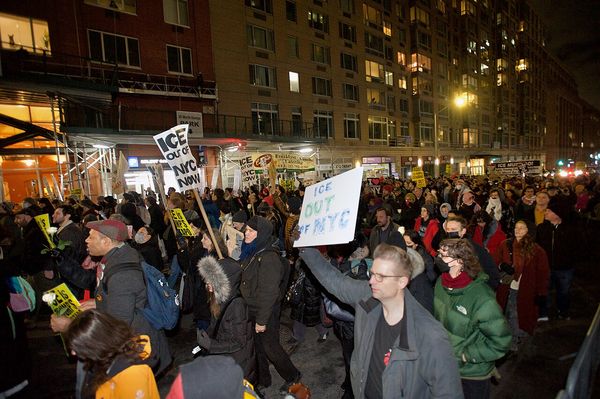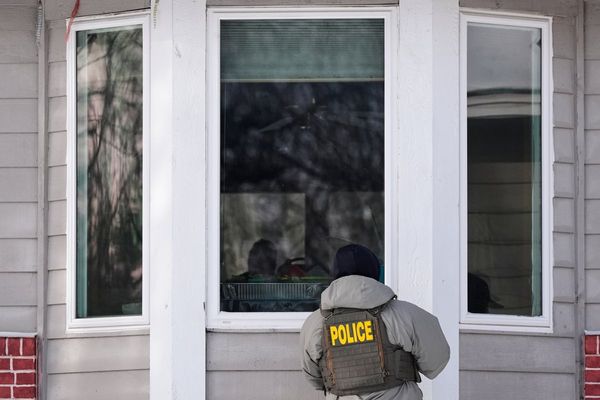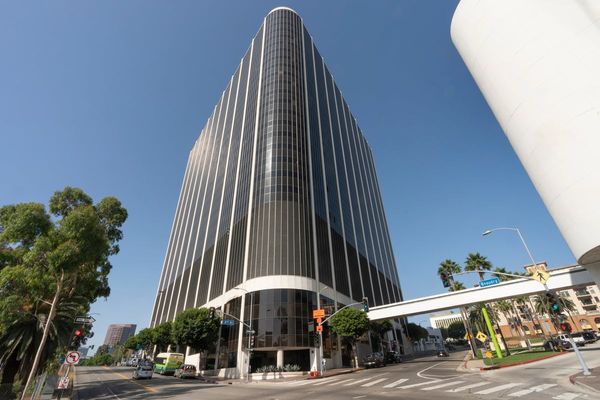Jignesh Raval is one of the best tennis coaches in the country. The last two national women’s champions Zeel Desai and Vaidehi Chaudhari have come from his stable in Ahmedabad. In fact, he has trained them from the age of 10 and 11 respectively.
A soft-spoken coach, with a tough streak when it comes to moulding players, Jignesh has had a rich experience grooming a lot of players with missionary zeal.
As we interact with him at his home and the many tennis centres in Ahmedabad, including the state-of-the-art facility Altevol Academy, run with German collaboration along side Alexander Waske, Jignesh reveals his passage to excellence.
What strikes most is the fact that he has given up on a rewarding career in the UK, USA and Canada, where he had a chance to live the rest of his life, teaching tennis. He chose to be back home after fruitful stints in all those countries, using the experience to put a system in place in India.
A national-level player, who represented the Gujarat University, Jignesh had started as a tennis coach at the Ahmedabad City Foundation before moving to the tennis-rich nations for invaluable experience — at Camp Robin Hood, Van der Meer Centre, and working for David Lloyd at the Country Club near Wimbledon, apart from Bobby Mahal in Canada.
First Indian coach
“I was the first Indian coach at Camp Robin Hood. There have been nearly 50 Indian coaches there so far,” said Jignesh, with understandable pride.
What helped him gain immense experience within a few years of international stint was his devotion to the job.
“I worked way too hard in those days. Was working for 12 hours day, and it was quite normal to go the full year without a single day off”, he said.
Yet, when he set up a system in Ahmedabad, he ensured that the coaches were not over-worked.
“The first big step in Ahmedabad was private land and private resources for tennis. We started in 2011 with three tennis courts. Then, it increased to seven in the second phase. The Ahmedabad Racquets Academy (ARA) was originally planned to have 22 tennis courts. Then, the plan changed as a football field took away space,” recalled Jignesh.
“We had a standard teaching method (STM). And as per the PTR (Professional Tennis Registry) system, we had all the coaches looking the same, with a dress code, and we also had weekly plan for training,” he said.
Code of ethics
That apart, there was code of ethics for the coaches about how they interact with the players.
“Most importantly, we ensured that every court will have only four to six kids training at a time. Each coach was also entrusted with only 15 students. The coaches had a 100% hike in their salary, and had to coach only for eight hours. We had parents’ education, about what to do and what not to”Jignesh Raval
Despite the favourable flow, life was not always kind. Jignesh went through a tough time, off the court, and had to part ways with his pet project.
He had trusted friends, Dhiman Vyas, Shani Patel and his wife Kunjal Patel, with all the resources, to back him with a fresh venture, and a brand new facility with six courts that sprang up in three months.
“Out of the 32 players in ARA, 29 came with me to the Ahmedabad International Sports Academy (AISA) in 2015,” said Jignesh, giving a hint about the trust he had gained in the tennis circle.
In 2018, Alexander Waske, a former top-100 player running a successful tennis system in Germany, visited Ahmedabad, and initiated a deal for a healthy collaboration.
“We had to go to Germany for a three-month training stint. There were 16 of us. The German Ambassador, a tennis fanatic, visited us to confirm that we were all genuine tennis fraternity. We got the visa in 10 days, and had a very fruitful learning experience in Germany. The tennis continued back home and all the players and parents waited for us to return”, said Jignesh.
Word spread and the Academy attracted players from across the country.
“We had about 20 kids from North India alone, from Delhi, Chandigarh, Haryana,” he said.
With all his experience, Jignesh feels strongly that the Indian women players can become top-100 a lot quicker than the men.
THE GIST
The last two national National women’s champions Zeel and Vaidehi have come from Jignesh’s stable in Ahmedabad
When he set up a system in the western city, he ensured that the coaches were not over-worked
With all his experience, Jignesh feels strongly that the Indian women players can become top-100 a lot quicker than the men
“Both Zeel and Vaidehi, first became national under-18 champs before winning the national women’s titles. They are different. Zeel is very sound in tactics and technique. We call her Zeligator as she operates on court like an alligator. Off court, she may be easy going, but has great clarity on court. Vaidehi is smart physically and works very hard. She is obedient and loyal. Most energetic,” he said.
Two players who were very close to him and his family, as they stayed with him at home, Paras Dahiya and Aman Dahiya did very well before they chose to move on.
“Paras was like my son. Aman, I had announced in 2019 that he would play the junior Grand Slam by 2022. He did !”, Jignesh was a bit emotional, as the attachment with the two was pretty strong, as they had endured the pandemic together at his residence.
What gave most satisfaction to Jignesh was the stint he had with the tall and talented Mann Shah.
“When I saw Mann play, I told his parents that there would be only training for nine months. Mann was top-20 or 30 at that time in national ranking. He came down to 65. But we stuck to our plan. In those days, I used to call the players at 4 a.m. It was the best time to train and we did it till 6.30 a.m. We could hear the sound of the ball, and the players developed a high degree of concentration. We did it for six weeks, as preparation. Parents were mad at me,” he remembered.
Desired results
The desired results were achieved. Mann, the last direct entry in the Fenesta National championship, won the under-16 title. Zeel was women’s runner-up, Vaidehi won the under-18 title.
“Mann was on fire in that championship in 2017,” he said with pride.
From the wilderness, Mann went on to become one of the top juniors in the world, playing the Grand Slams, and beating the World Nos. 1, 2, 3 juniors along the way.
Jigensh pulls out his mobile phone and shows the details of Mann beating Holger Rune 7-5, 7-5 in the semifinals, on way to the title in Abu Dhabi in an ITF junior tournament.
Of course, we all know that the 20-year-old Dane, Holger Rune is No.4 in the world now. Mann is trying to return to tennis after his collegiate stint in the US.
Jignesh has tremendous respect for a lot of coaches around the country, including the Aussie Todd Clark who had worked a great deal with Zeal, among others. He admires the work ethic of the country’s No. 1 player Ankita Raina.
“If our young players have the work ethic and attitude of Ankita, we can definitely have a top-50 player in the world,” he assures.
He is very clear that with discipline, integrity and work ethic, players and parents need to have a long-term plan for healthy progress.
With his mother Yashodhara Raval being a recipient of the best teacher award from the then Chief Minister Narendra Modi in 2008, Jignesh feels that teaching comes naturally to him. He is confident that with best practices, Indian tennis can flourish.







